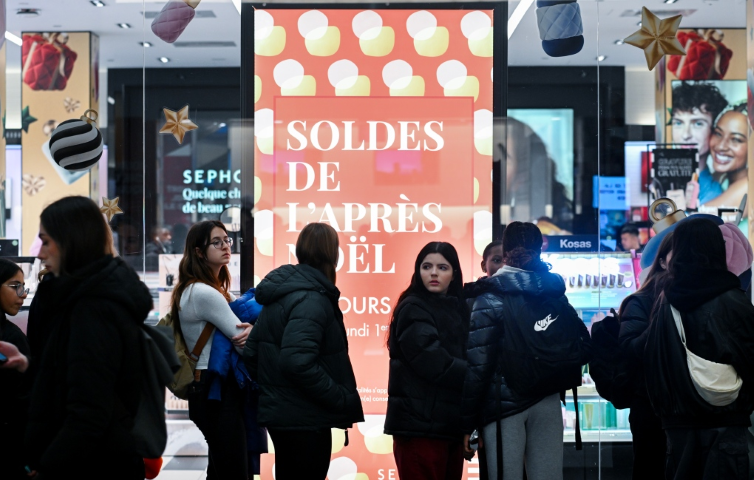
A crowd forms outside a Sephora store on Boxing Day in Montreal, Tuesday, December 26, 2023. THE CANADIAN PRESS/Graham Hughes captured the scene.
A burgeoning trend among kids and teens dubbed the "Sephora kids" movement, has sparked concerns among dermatologists regarding the potential adverse effects of certain skincare products on youthful skin.
The trend has gained traction on social media platforms, particularly TikTok, where young enthusiasts share their visits to the beauty and skincare retailer Sephora. The viral posts often showcase pricey hauls and elaborate skincare routines. However, the hashtag #sephorakids on TikTok reveals accusations of disruptive behaviour, including leaving messes, damaging store displays, and mistreating staff and customers.
While some view this as harmless playacting, dermatologists caution that certain skincare products may not be suitable for children and could pose risks. Monica Li, a cosmetic and medical dermatologist, underscores the lack of testing on children and teens for many adult skin care products, emphasizing the uncertainty regarding their safety and tolerability.
Although specific skincare products designed for children do exist, such as tested sunscreens and moisturizers, some adult formulations may contain potent ingredients unnecessary for younger users. Collagen, for instance, is deemed generally safe for adult skin but deemed unnecessary for children who naturally produce sufficient amounts.
Dr. Li advises against using products with active ingredients targeted at aging, like retinol, exfoliating scrubs, eye creams, or vitamin C serums, deeming them potentially harmful to delicate young skin. Topical retinoids for treating acne are permissible for tweens but are meant for managing skin conditions, not cosmetic purposes.
Dr. Linda Xing, a dermatologist, suggests that most adult skincare products can be used for children and preteens, but issues may arise if the use becomes excessive or if potent adult-oriented ingredients are involved. For example, retinol, known for its anti-aging and acne-treating benefits, can damage the skin barrier if not used carefully.
Furthermore, products with alpha or beta hydroxy acids can harm the skin barrier if overused, leading to redness, burning, and other adverse effects. Excessive use of skincare or makeup may also sensitize the skin to potential allergens, posing a risk of contact allergies later in life.
Despite these concerns, dermatologists acknowledge the positive aspect of children's interest in skincare as an opportunity for educating them about good skin hygiene practices. Dr. Li recommends kid-friendly skincare options, such as hyaluronic acid serums, ceramide-based moisturizers, lip balms with natural ingredients, and hydrating face masks.
In conclusion, dermatologists emphasize the importance of a simple skincare routine for children and preteens, discouraging the unnecessary use of complex multi-step routines. Dr. Xing suggests focusing on the basics—cleanser, moisturizer, and sunscreen—while educating kids about the significance of sun protection for building lifelong healthy skin habits.















